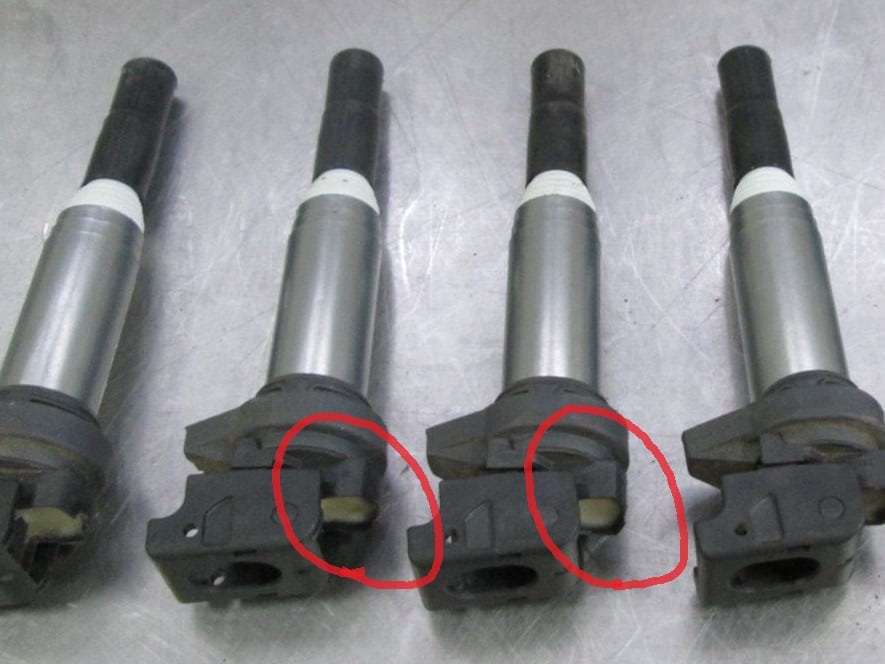Ignition coil failure is a common issue in BMW 1 Series vehicles. This crucial component ignites the spark plugs, ensuring your engine runs smoothly. In this blog post, we’ll delve into the primary causes of ignition coil failure, provide helpful tips for diagnosing the issue, and offer practical solutions to get your BMW back on the road.
What’s an Ignition Coil?
An ignition coil is a vital component in a vehicle’s ignition system. It’s responsible for boosting the low voltage from the battery to a much higher voltage, which is necessary to create the spark needed to ignite the fuel-air mixture in the engine’s cylinders.
Essentially, it acts as a transformer, stepping up the voltage to a level that can jump the gap between the spark plug electrodes and initiate combustion.
Causes of Ignition Coil Failure in BMW 1 Series
1. Excessive Heat
The common culprit behind ignition coil failure in BMW 1 Series models is excessive heat.
This heat can be generated from various sources, including prolonged idling, heavy traffic conditions, and aggressive driving.
Over time, the excessive heat can cause the coil’s internal components to overheat, leading to insulation breakdown and, ultimately, failure.
2. Electrical Short Circuits
These commonly cause ignition coil failure in BMW 1 Series. They can occur due to various factors, including damaged wiring harnesses, faulty connectors, or corrosion in the electrical system.
If not addressed promptly, these issues can lead to misfires, reduced engine performance, and even damage.
3. Moisture Intrusion
When moisture penetrates the coil’s electrical components, it can cause short circuits, corrosion, or increased resistance.
This can disrupt the coil’s ability to deliver the necessary high-voltage spark to the spark plug, leading to misfires, reduced engine performance, and even engine damage.
4. Manufacturing Defects
Manufacturing defects give birth to a number of car issues that can be frustrating and one of them is the ignition coil failure.
This can be because of faulty materials used in the coil’s construction to manufacturing errors. For instance, a coil might have a flaw in its insulation, leading to short circuits or arcing.
Additionally, manufacturing defects can cause internal components to be misaligned or damaged, affecting the coil’s ability to generate the necessary voltage. Identifying and addressing these manufacturing defects is crucial in preventing ignition coil failures and ensuring the optimal performance of BMW 1 Series vehicles.
As the proud owner of a BMW 1 Series, your vehicle must keep performing at optimum levels. To achieve this, frequent checks and services must be carried out to ensure that all components function efficiently. Your BMW deserves luxury care; contact us today to book a service.


